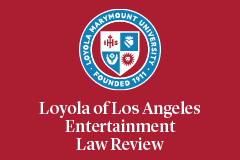Abstract
In early 2012, a Dutch magician did something unthinkable within the secretive and tight-knit magic community: he posted a YouTube video of himself performing a fellow magician’s illusion, and offered to reveal the secret to his viewers for a $3,050 fee. The illusion, however, was not just any old trick; it was the signature move of Raymond Teller, one half of the famous magic duo “Penn & Teller.” In April 2012, Teller took the unusual step of filing a lawsuit in federal court, alleging copyright infringement and unfair competition, to protect the secret behind his illusion. It is not clear, however, that magic is a copyright-protectable category of work. Neither the United States 1976 Copyright Act nor the United States’ Copyright Office’s working compendium addresses magic. No federal court has held magic protectable since the Copyright Act was amended in 1976. Still, magic meets the constitutional and statutory requirements for copyright-protectable work. The Teller court should hold that magic illusions are eligible for copyright protection, regardless of whether it finds there was infringement in this particular case.
Recommended Citation
Janna Brancolini,
Abracadabra! - Why Copyright Protection For Magic Is Not Just An Illusion,
33 Loy. L.A. Ent. L. Rev. 103
(2013).
Available at: https://digitalcommons.lmu.edu/elr/vol33/iss2/1


